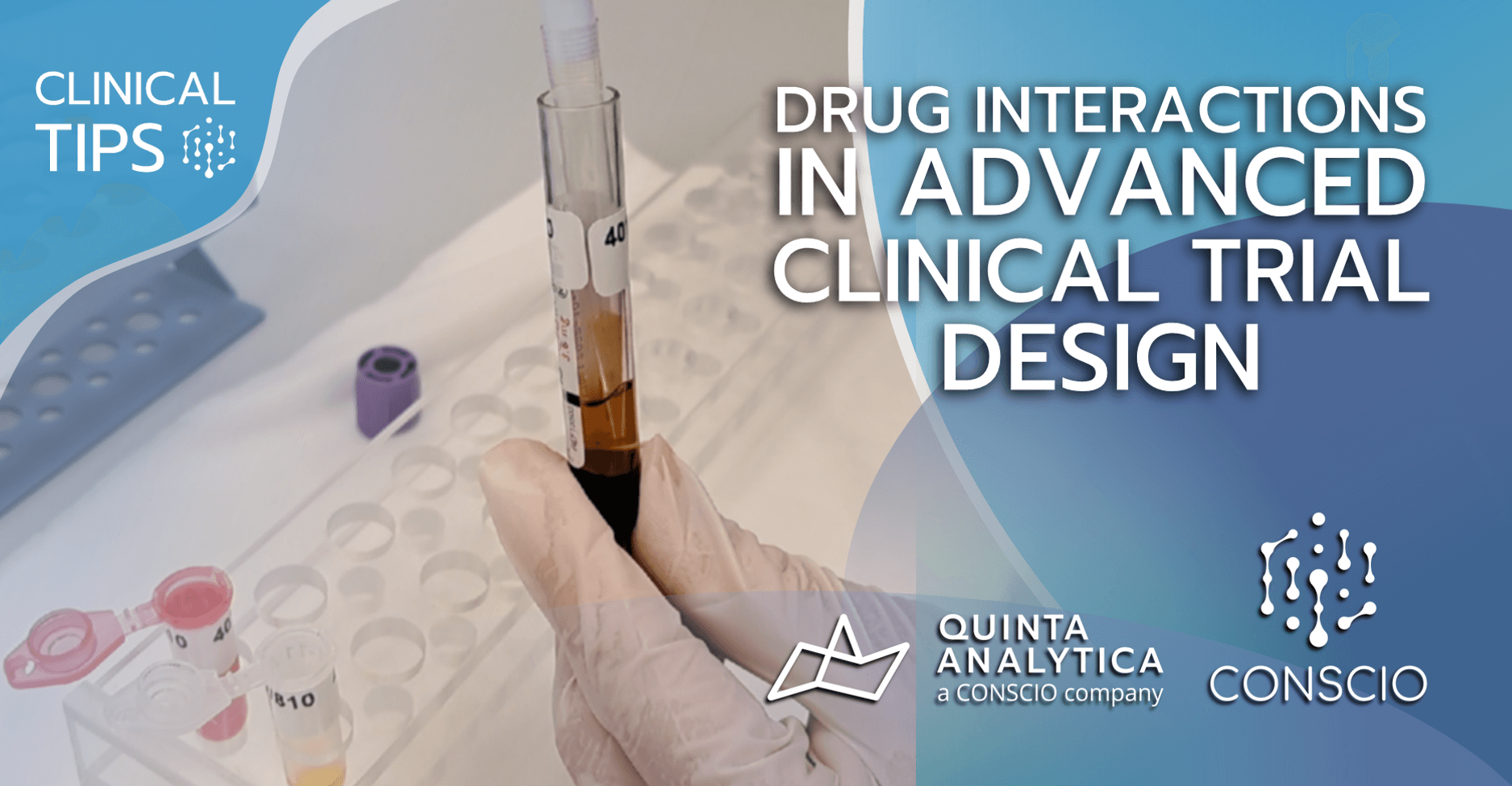
In today’s article we talk about drug interactions, which play a crucial role in the effectiveness and safety of pharmaceutical treatments and the accurate design of clinical trials. Our expert team must investigate such interactions at multiple levels when conducting pharmacokinetic/bioequivalence studies: Drug-drug, food interactions, external influences, and even subtle cellular-level changes. Furthermore, we keep these interactions in mind throughout the entire process to provide comprehensive support from early consultancy during study design to clinical examinations, bioanalytical method development, and biostatistical analysis.
But what are drug interactions? When a drug is administered to the body, it undergoes a series of processes known as ADME (absorption, distribution, metabolism, and excretion). These processes can be influenced by various external and internal factors, leading to drug interactions. These interactions can cause side effects and alterations in the pharmacokinetic properties of the drug; ultimately affecting its pharmacodynamics and therefore having significant implications for clinical considerations. Drug interactions can be detected at different levels, ranging from easily noticeable reactions in the digestive system to subtle cellular-level changes involving drug absorption, transport, distribution, and metabolism. External factors such as perfusion, biorhythm or hormone release can also impact drug physiology and lead to such interactions. Adverse events may become more prevalent with higher drug concentrations resulting from such interactions, or the therapeutic effect may be diminished due to reduced drug concentrations. Understanding and studying these drug interactions is vital for ensuring the safe and effective use of medications in clinical trials.

Quinta Sampling Room
At Conscio’s subsidiary Quinta-Analytica, we have extensive experience in conducting pharmacokinetic/bioequivalence studies, which naturally include investigations into drug interactions. In our everyday bioequivalence work, assessing the effects of food is commonly required when examining drug interactions. Additionally, for new fixed-dose combination formulations comprising two generic drugs, there usually is the need for three-period cross-over studies to determine if the concentrations of the individual molecules differ when taken alone versus when taken together.
Our team of experienced professionals is ready to offer comprehensive support for investigating such drug interactions: From early consultancy during study design to ensure appropriate considerations are made; clinical examinations and evaluation of adverse effects; in-house development and validation of bioanalytical methods for the accurate determination of drug concentrations, metabolites as well as interactions; to clinical data processing, SAS biostatistics and compilation of full study reports. By choosing us for your ADME/drug interaction studies, you gain access to a comprehensive range of services and expertise, backed by our years of experience in the field.
CONSCIO GROUP is a European leading customer-centric contract research & development service provider for the pharmaceutical industry delivering customized end-to-end drug development solutions within the areas of innovative R&D and formulation, analytical QC and clinical solution as well as small scale manufacturing. Conscio Group members include Quinta-Analytica (Czechia) Gen-Plus (Germany) EL Labs (Slovakia) LVA (Austria) and HyServe (Germany). Visit www.consciogroup.com for more information.
Article by Tereza Korecká and Albert Pineda

